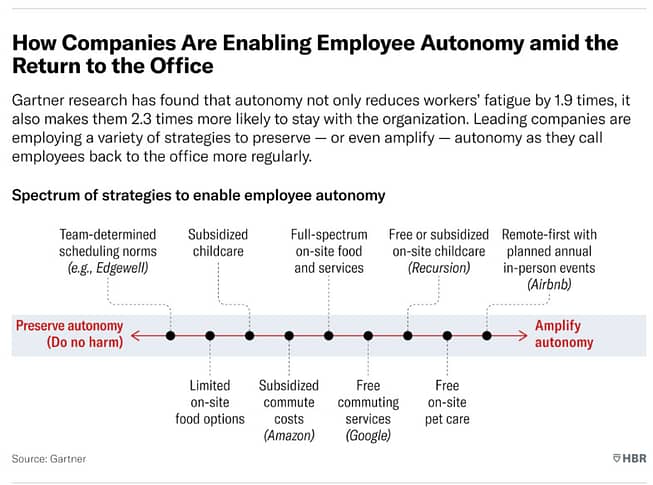Payroll leaders need to consider as they contemplate the WFH and hybrid models that human-centric strategies may be helpful in maintaining team member engagement. “Renewed corporate purpose statements have more explicitly centred human-centric values, such as employee well-being, growth, and inclusion. Gartner research shows that businesses who put these human-centric values front and centre see better talent and business outcomes.” Kimberly Shells, Caitlin Duffy HBR Contributors
Many are concerned about employee productivity, collaboration, and organizational culture in the hybrid world, with some leaders responding by implementing return-to-office mandates; some employees have grown accustomed to autonomous and flexible work arrangements, to the work onsite model and may be disappointed at least and even be disengaged from their employer in some way.
Transition back to more in-office work, with research highlighting that 67% of employees feel that going to the office requires more effort and costs that may outweigh the benefits of working from the office.

A number of options that Inzenius has adopted and could be considered include:
- Staging work time outside of peak traffic periods,
- Subsidised near work parking,
- Facilitating near-work access to child care with or without subsidies,
- Focusing recruitment on near-office residents
- Job role crafting to balance must do with personal development and training
- Set aside some learning time in paid work hours opportunities.
A key attribute of in-office time is the team members’ connection to the management opportunities to aid in building their learning and career,
At Inzenius, we were also modest in our WFH strategies to maintain our high level of support services for our clients and did not overreach on them. This has enabled us to maintain a consistent Hybrid model as a core component of our team member engagement strategy. This has removed the pain the team members could feel with return-to-office mandates.

